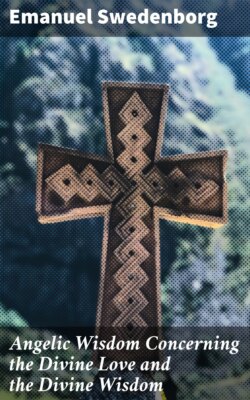Читать книгу Angelic Wisdom Concerning the Divine Love and the Divine Wisdom - Emanuel Swedenborg - Страница 8
На сайте Литреса книга снята с продажи.
17. IN GOD-MAN INFINITE THINGS ARE ONE DISTINCTLY.
ОглавлениеThat God is infinite is well known, for He is called the Infinite; and He is called the Infinite because He is infinite. He is infinite not from this alone, that He is very Esse and Existere in itself, but because in Him there are infinite things. An infinite without infinite things in it, is infinite in name only. The infinite things in Him cannot be called infinitely many, nor infinitely all, because of the natural idea of many and of all; for the natural idea of infinitely many is limited, and the natural idea of infinitely all, though not limited, is derived from limited things in the universe. Therefore man, because his ideas are natural, is unable by any refinement or approximation, to come into a perception of the infinite things in God; and an angel, while he is able, because he is in spiritual ideas, to rise by refinement and approximation above the degree of man, is still unable to attain to that perception.
18. That in God there are infinite things, any one may convince himself who believes that God is a Man; for, being a Man, He has a body and every thing pertaining to it, that is, a face, breast, abdomen, loins and feet; for without these He would not be a Man. And having these, He also has eyes, ears, nose, mouth, and tongue; also the parts within man, as the heart and lungs, and their dependencies, all of which, taken together, make man to be a man. In a created man these parts are many, and regarded in their details of structure are numberless; but in God-Man they are infinite, nothing whatever is lacking, and from this He has infinite perfection. This comparison holds between the uncreated Man who is God and created man, because God is a Man; and He Himself says that the man of this world was created after His image and into His likeness (Gen. 1:26, 27).
19. That in God there are infinite things, is still more evident to the angels from the heavens in which they dwell. The whole heaven, consisting of myriads of myriads of angels, in its universal form is like a man. So is each society of heaven, be it larger or smaller. From this, too, an angel is a man, for an angel is a heaven in least form. (This is shown in the work Heaven and Hell, n. 51–86.) Heaven as a whole, in part, and in the individual, is in that form by virtue of the Divine which angels receive; for in the measure in which an angel receives from the Divine is he in complete form a man. From this it is that angels are said to be in God, and God in them; also, that God is their all. How many things there are in heaven cannot be told; and because the Divine is what makes heaven, and consequently these unspeakably many things are from the Divine, it is clearly evident that there are infinite things in Very Man, who is God.
20. From the created universe a like conclusion may be drawn when it is regarded from uses and their correspondences. But before this can be understood some preliminary illustrations must be given.
21. Because in God-Man there are infinite things which appear in heaven, in angel, and in man, as in a mirror; and because God-Man is not in space (as was shown above, n. 7–10), it can, to some extent, be seen and comprehended how God can be Omnipresent, Omniscient, and All-providing; and how, as Man, He could create all things, and as Man can hold the things created by Himself in their order to eternity.
22. That in God-Man infinite things are one distinctly, can also be seen, as in a mirror, from man. In man there are many and numberless things, as said above; but still man feels them all as one. From sensation he knows nothing of his brains, of his heart and lungs, of his liver, spleen, and pancreas; or of the numberless things in his eyes, ears, tongue, stomach, generative organs, and the remaining parts; and because from sensation he has no knowledge of these things, he is to himself as a one. The reason is that all these are in such a form that not one can be lacking; for it is a form recipient of life from God-Man (as was shown above, n. 4–6). From the order and connection of all things in such a form there comes the feeling, and from that the idea, as if they were not many and numberless, but were one. From this it may be concluded that the many and numberless things which make in man a seeming one, a Very Man who is God, are one distinctly, yea, most distinctly.
